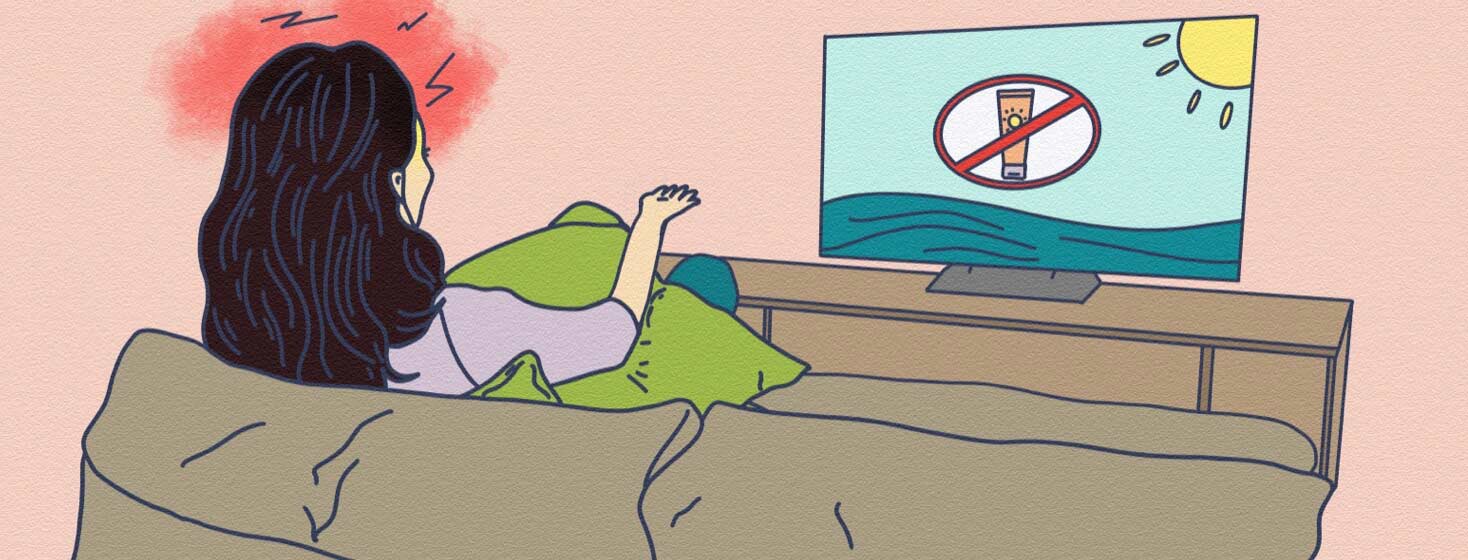How ABC's "The Bachelor" is Making a Joke of Skin Cancer Prevention
Let’s talk about The Bachelor, but not for the reasons most people want to chat about it. If you are a fan of this reality show and its sister show, The Bachelorette, you are quite used to recap discussions centering around who cried first, who went the extra mile to leave an impression, and who was sent packing. Season 26, episode 3 begs a different conversation, though. I don’t want to talk about who got a rose; I’d like us to talk about who got a bright red, raging sunburn.
An opportunity to teach sun protection, totally lost
There was a brief, and I mean as brief as the swimsuits, moment when I held out hope we were about to see at least a semi-serious conversation about the importance of sun protection and maybe even a nod toward skin cancer prevention and awareness. Nothing could have been further from the truth. The beach day turned lifeguard-themed competition for an individual date with Clayton, the bachelor, began with a Baywatch-style bang complete with the famous red one-piece swimsuits.
Good for you, ABC…well, wait a minute…
Nicole Eggert, from the original 90’s show, informed the contestants the first task in their lifeguard training was to protect themselves with sunscreen. Yay, right? ABC touting sun-safe practices? Awesome news! Nope. Not even close. It was quickly apparent the show and its parent network had no intention of doing anything close to promoting good health practices.
It was all a big joke
Contestants proceeded to make a mockery of correct sunscreen application by pouring what appeared to be a third or more of the bottle into their hands and smearing it liberally on a partner. What this show could have done for skin cancer prevention quickly became a joke. It was obviously just another in a long line of attention-getting ruses for audiences.
Painfully clear contradiction
In this same scene, Clayton, the focus of everyone’s attention, has distinct sunburn lines on his shoulders and across his chest. The challenges in this episode may have been filmed and then aired out of order, and he could have acquired the sunburn prior to the ridiculously exaggerated sunscreen application portion. Regardless, it’s painfully clear sun protection isn’t a priority for the cast and crew on The Bachelor. For a show that has participants spend a great deal of time outdoors in sunny California, it’s doing them a real disservice by not promoting sun protection more diligently.
Missed opportunities for advocacy
I got curious after watching this episode and did a bit of research. As it turns out, the Bachelor shows are leaving a long string of sun-damaged bodies in their wake. If you look as far back as 2007, Glamour referred to The Bachelor as “one big ad for sunscreen," addressing its overabundance of overly tanned bodies. Perhaps showing overly tanned contestants is some circuitous and backward form of advocacy. Twitter exploded in 2018 with jabs at The Bachelor in Paradise’s Fiji cast when it was apparent they skipped the SPF in their first days on the show. The long line of prospective partners began their stint on the show with one thing in common: sun damage.
Step it up!
ABC is sorely missing the mark when it comes to skin cancer advocacy. They have a huge platform and phenomenal opportunity to spread the word about sun-safe practices and change minds. With millions of viewers tuning in to see who gets a rose each week, how simple would it be to encourage contestants to apply sunscreen, correctly, before heading out for a day outdoors? The more commonplace sun protection becomes, the more lives can be saved. Step up, ABC. It’s past time.
Have you been surprised by how a series or movie has dealt with the topic of sunscreen use or skin cancer prevention? Tell us about it in the comments.

Join the conversation